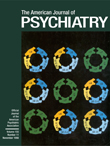A large number of factors have produced a marked upwelling of interest in forensic psychiatry. These factors include the intrinsic fascination of the field; the visibility of controversial, high-profile cases; the intellectual challenge of reconciling two such diverse disciplines as psychiatry and law; the desire for freedom from managed care’s intrusions on sound clinical work; and many others.
In the accompanying proliferation of literature in this subspecialty field, only a handful of textbooks have achieved essential or core status in that they are found in every forensic library and used in every forensic fellowship. The first edition of this text was one of those few. The second edition, therefore, has, figuratively, large shelves to fill. I suggest that it fills them.
The authors define the book’s purpose as “to provide [mental health professionals who perform psychological evaluations for the courts and lawyers and judges] with a comprehensive guide to the issues the legal system has most commonly asked clinicians to address” (p. vii). The new material in this edition includes such recently expanding areas as discrimination and entitlement law and education and habilitation topics.
For those unfamiliar with the authors’ approach, each topic begins with the legal background; this is followed by discussion of relevant research that may support opinions on the subject; finally, guidance is provided on the particular evaluation in question. As before, the book is pervaded by ethical concerns and tensions and a laudable bias toward research-based assessment methods.
The second edition is divided into 18 substantive chapters, a penultimate chapter providing extensive examples of cases and case reports, and a large glossary. These are uniformly excellent: thorough, logically organized, and clearly written. The chapters move from general background issues to methods of assessment, agency issues, and forensic services; an extensive section on the criminal process; noncriminal issues such as civil commitment and compensations systems; and children and families. An entire portion is wisely devoted to report writing and testimony under the rubric “Communicating with the courts.” The sample reports and glossary chapters round out the text. Each chapter is followed by a useful list of references, presumably for further reading, since they are not tied to the chapter content. Instead, each chapter’s citations, notes, and references are placed in an end-notes section at the back of the book, making for some awkward book-balancing (and it is a big book!) to keep track of these often useful comments and citations. I found the sections on courtroom techniques to be especially witty, realistic, and useful. Although I cannot speak to forensic psychology certification, I believe this text should serve as a valuable resource for those clinicians seeking board certification in forensic psychiatry.
At the risk of seeming to pick nits, I noted that the index is somewhat shorter than might be expected and somewhat curiously arranged. To pick an example at random, looking for competency to make a contract, a fairly basic topic, one finds nothing under “contract”; looking under “competency,” one finds “Competency to make a contract (see Guardianship)”; looking under “Guardianship,” one finds no mention of contracts. The glossary completely omits any form of the term “reasonable medical (or psychological) certainty,” perhaps the most significant concept to be grasped by any expert witness; the term is referenced in the index, however.
Overall, this second edition is every bit as valuable as the first and, similarly, deserves a place on every forensic bookshelf for its comprehensiveness, clarity, utility, and soundness.

